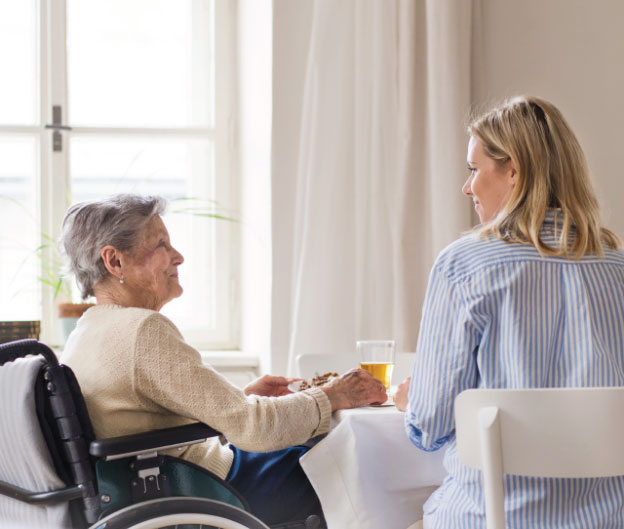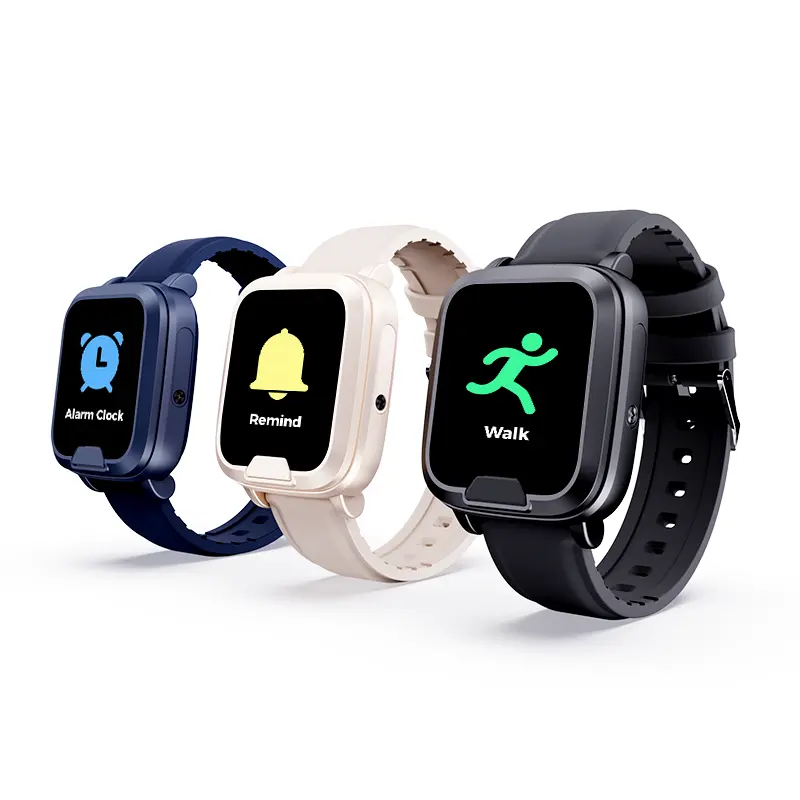How to Access a Helpline for Elderly Support: A Comprehensive Guide
A startling 40% of older adults regularly experience loneliness. The situation becomes more worrying because many seniors remain unaware of available support services during times of need.
Medical emergencies, isolation, or daily activity challenges can make elderly support helplines your lifeline. These dedicated services offer immediate assistance through elderly abuse hotlines and emergency care services. They connect seniors with vital resources around the clock.
Quick access to these support services makes a significant difference during emergencies. This piece guides you through various helpline options and helps you get the support exactly when needed.
The following sections detail everything about elderly support helplines and show you how to maximise these valuable resources.
Helpline for elderly – Various numbers
- If in immediate danger, call 000
- Services Australia (Centrelink)
Phone: 132 300
Pension inquiries and health care cards. - My Aged Care
Phone: 1800 200 422
Registration, assessments, and finding a provider. - Seniors Online
Phone: 1300 797 210
Seniors Card applications, replacement cards, and cancellations. - Public Transport Victoria (PTV)
Phone: 1800 800 007
Register to receive free travel vouchers for Seniors Card holders. - Multi-Purpose Taxi Program (MPTP)
Phone: 1800 638 802
Apply to receive a half-price taxi card (eligibility criteria apply). - Elder Rights Advocacy
Phone: 1800 700 600
Individual advocacy support with aged care service providers. - Office of the Public Advocate (OPA)
Phone: 1300 309 337
Information and advice regarding Powers of Attorney. - Consumer Affairs Victoria
Phone: 1300 558 181
Information on general consumer rights and retirement villages. - Carers Victoria
Phone: (03) 9396 9500
Support, information, and training programs for carers. - Carer Gateway Victoria
Phone: 1800 422 737
Support, advice, and respite services for carers. - Housing for the Aged Action Group
Phone: 1300 765 178
Information and support with housing issues for people aged 50+. - National Debt Helpline
Phone: 1800 007 007
Information, support, counselling, and referrals regarding debt and associated issues. - Victorian Ombudsman
Phone: 1800 765 178
Complaints regarding state and local government services. - Australian Financial Complaints Authority
Phone: 1300 765 178
Complaints about banking, superannuation, loans, and financial advisors. - Health Complaints Commissioner
Phone: 1800 582 113
Complaints regarding health services based in Victoria.
Understanding Elderly Support Helplines
The right support helpline can make all the difference in getting help exactly when you need it. Let’s look at the network of support services that help older adults.
Types of helplines available
These specialised helplines support different needs:
- National Elder Abuse Hotline: A free, confidential service that automatically connects you to support in your state or territory [1]1800ELDERHelp1800 353 374
- My Aged Care Helpline: Your starting point to access government-funded aged care services [2]1800 200 422
- Emergency Support Lines: Including Lifeline for 24/7 crisis support
- State-specific Elder Support Services: Dedicated helplines that operate in different regions
When to contact each service
Your specific situation determines the best time to call. You should reach out to My Aged Care if you need help with daily activities or find it harder to manage on your own [3]. The Elder Abuse Helpline helps if you experience, witness, or suspect abuse of an older person [4].
Here’s when to get immediate help:
- General aged care inquiries: My Aged Care operates from 8 am to 8 pm Monday to Friday, and 10 am to 2 pm on Saturdays [5]
- Elder abuse concerns: 1800 ELDERHelp (1800 353 374) gives immediate support and guidance [6]
- Crisis situations: Emergency helplines provide support 24/7
What support to expect
These helplines give you support that fits your needs. The Elder Abuse Hotline provides:
- Confidential conversations to assess risk
- Support to understand relationship dynamics
- Information about protecting yourself
- Guidance on available support services [4]
You can stay anonymous and don’t need proof to ask for help [4]. Take your time during these conversations – there’s no time limit to discuss your situation.
My Aged Care helps you with:
- Understanding care options
- Assessment of your needs
- Connecting to local service providers
- Information about costs [2]
Note that trained professionals staff these helplines and understand elder care’s complexities [4]. They give support in multiple languages and connect you with extra services as needed.
Preparing to Make the Call
A few moments of preparation can make your call to an elderly support helpline work better and feel more comfortable. Let me show you how to get the most from your conversation with support services.
Information to have ready
Your conversation with support services will go smoothly if you have these key details on hand:
- Your full name and current address
- Date of birth and Medicare number
- Contact details for any representatives or agents
- Recent changes in your care circumstances
- A brief description of your current situation or concerns [7]
You can appoint someone to help with your care discussions. Note that representatives can be family members or friends, while agents must be professionals who work in a support capacity [8].
Best time to call
My Aged Care and most aged care services operate from 8 am to 8 pm Monday to Friday, and 10 am to 2 pm on Saturdays [9]. Emergency support helplines stay open 24/7, so help is there whenever you need it.
Creating a comfortable environment
A comfortable space for your call helps reduce anxiety and ensures clear communication. Here are the key elements to think about:
- Physical Comfort
- Pick a quiet, well-lit area
- Make sure you have proper ventilation and comfortable temperature
- Use a chair with good back support [10]
- Call Preparation
- Keep a notepad and pen close
- Have water nearby
- Check your phone’s battery
- Use speakerphone if you need to take notes
Getting help doesn’t mean you’re losing independence. Support with daily activities can help you stay in your home longer and maintain your independence [3]. A trusted friend or family member can sit with you during the call if you feel anxious.
Support services offer interpreter services and text-based options to make their help accessible to more people [8].
Step-by-Step Guide to Accessing Support
That first call for support might seem overwhelming. A clear understanding of what to expect can help put your mind at ease. Let’s look at how you can access elderly support services.
First phone contact process
The process is straightforward and puts your comfort first. Here’s what happens when you call a helpline for elderly support:
- Your call will be automatically directed to the appropriate service in your state or territory [8]
- You’ll connect directly to a support staff member without going through an intake process [4]
- You can choose to remain anonymous if you prefer [4]
- Your call has no time limit, so you can fully explain your situation [4]
Speaking with support staff
Support staff will give you patient and understanding assistance during your conversation. The support team can:
- Help assess your current situation and risks
- Guide you through available options
- Connect you with local services
- Provide information about aged care services [2]
Note that you don’t need any proof or evidence to ask for support [4]. The staff has training to listen and understand your situation. They provide a safe and respectful space for discussion.
Following up after the call
Your first contact opens several pathways based on your needs. If you’ve contacted My Aged Care, an assessor might visit your home to review your care requirements [2]. You could connect with:
- A care finder to give intensive support in accessing services [8]
- Someone to support your wishes [8]
- A representative to help with aged care discussions [8]
You can always call the helpline again if you need more support. The staff will try to connect you with someone you’ve talked to before when possible [4]. Important: All conversations stay confidential, and detailed records of your calls are not kept [4].
The support team can help create a safety plan for situations with potential abuse. They can connect you with specialised services through the Elder Abuse Helpline (1800 353 374) [6]. They work at your pace and respect your choices about next steps.
Overcoming Common Barriers
Getting help shouldn’t feel like an uphill battle, yet older adults often hit roadblocks when they try to access support services. Here’s a look at these challenges and some practical ways to make your helpline experience better.
Dealing with anxiety about calling
Feeling nervous about making that first call is natural. Studies show more people experience phone anxiety these days, especially with unknown numbers [11]. This anxiety comes from:
- Not knowing what to say or how to express needs
- Feeling judged by others
- Thinking you might be a burden
The helpline staff has training to be understanding and supportive. They guide conversations and help you share your concerns at your own pace [12]. You can take time to collect your thoughts. Share only what feels right to you.
Language and communication challenges
Different support options exist for people who don’t speak English as their first language or have specific communication needs:
- Free Interpreter Services: The Translating and Interpreting Service (TIS) connects you to over 150 languages, 24/7 [13]
- Text-Based Options: Many services give you choices beyond voice calls, like webchat and SMS support [14]
- Specialised Communication Support: The National Relay Service helps people with hearing or speech impairments [15]
Important: Language barriers shouldn’t stop you – professional interpreters can join your call within minutes to help you communicate clearly with support staff [15].
Technical difficulties
The digital world creates challenges for many older adults [16]. Common technical issues include:
- Operating smartphones or digital devices
- Navigating automated phone systems
- Using hearing aids during calls
These solutions can help:
- Device Support: Let a family member or friend help set up your phone’s helpline numbers
- Sound Quality: Try speakerphone or hearing aid-compatible settings
- Alternative Options: Text-based services might work better if calls are hard [14]
Studies show that only 40% of adults understand health messages in standard formats [17]. Ask for clearer explanations or request information in a format that suits you better.
Alternative Ways to Get Help
Traditional phone helplines aren’t your only option to access elderly support services in today’s digital world. You might prefer typing over talking or need help in different languages. Rest assured, there’s a support channel that matches your comfort level.
Online support options
The Be Connected initiative gives older Australians a complete digital learning platform. This free government service helps you:
- Learn basic online skills to access support services
- Direct yourself through important websites like myGov
- Use communication apps like Zoom and Skype
- Spot and avoid online scams
- Keep important documents safe in the cloud [18]
Be Connected gives you access to hundreds of free learning resources that keep you connected to people and services you need [18]. The platform has a podcast series and practise area where you can test your digital skills safely [18].
Text-based services
Text-based support services run 24/7 if you express yourself better through writing. These services give you:
- SMS Support: Text the crisis support number (0477 13 11 14) to connect with trained support staff [19]
- Online Chat: Get confidential one-to-one support through website chat features
- Anonymous Support: Share your concerns without revealing who you are [20]
Text-based services start with a quick anonymous survey to match you with the right support [20]. A trained crisis supporter will then connect with you, listen without judgement and give you a safe space to discuss your concerns [20].
Using interpreter services
The Australian Government funds complete translation and interpreting services to help you communicate clearly:
Immediate Language Support: The Translating and Interpreting Service (TIS National) runs round-the-clock and offers:
- Immediate phone interpreting
- Pre-booked phone interpreting
- On-site interpreting
- Video remote interpreting [21]
Specialised services for people who are Deaf, Deafblind, or hard of hearing include:
- The National Sign Language Programme through Deaf Connect
- The National Relay Service for making and receiving phone calls
- Captioning services for better communication [22]
These services work 24 hours a day anywhere in Australia [22]. Professional interpreters can join your conversation within minutes without special arrangements [21].
Important: Alternative support options keep the same level of confidentiality and professional support as traditional helplines. You can switch between different communication methods based on what feels right for you.
Note that your needs matter equally whether you choose alternative channels for support. You’ll get the same quality care and attention through typing, texting, or using an interpreter as you would through a traditional phone call.
Conclusion – Helpline for elderly
Getting help through elderly helplines is straightforward and simple. You can connect through regular phone calls, text messages, online chat, or use interpreter services. Trained professionals are ready to help with your specific needs, and they provide confidential support without any judgement.
Taking care of yourself is important, and asking for help is a sign of strength. The core team understands your challenges and will work with you at a comfortable pace. These services are a great way to get support in whatever way works best for you.
Support services keep evolving to make help accessible to more people. You can get vital assistance quickly once you know your options and prepare accordingly. Take that first step today – better support and care are waiting for you.
References
[1] – https://www.healthdirect.gov.au/elder-abuse
[2] – https://www.myagedcare.gov.au/
[3] – https://www.myagedcare.gov.au/help-at-home
[4] – https://eapu.com.au/elder-abuse-helpline/
[5] – https://www.health.gov.au/topics/aged-care
[6] – https://www.ag.gov.au/rights-and-protections/protecting-rights-older-australians
[7] – https://www.myagedcare.gov.au/contact-us
[8] – https://www.myagedcare.gov.au/getting-support
[9] – https://www.health.gov.au/contacts/my-aged-care
[10] – https://www.voicespin.com/blog/call-centre-environment/
[11] – https://www.thecut.com/article/psychologists-explain-your-phone-anxiety.html
[12] – https://www.helpguide.org/mental-health/treatment/calling-a-helpline
[13] – https://www.carergateway.gov.au/translated-resources
[14] – https://www.twilio.com/en-us/blog/solve-common-chronic-247-hotline-system-problems
[15] – https://www.lifeline.org.au/language-support/
[16] – https://bmcgeriatr.biomedcentral.com/articles/10.1186/s12877-022-02816-y
[17] – https://www.health.vic.gov.au/older-people-in-hospital/assessment-communication-and-person-centred-practise/communicating-with-older-people
[18] – https://agedcareengagement.health.gov.au/blog/learn-new-digital-skills/
[19] – https://www.lifeline.org.au/about/our-services/
[20] – https://www.lifeline.org.au/crisis-text/
[21] – https://www.health.gov.au/our-work/translating-and-interpreting-service-tis-national-for-aged-care-service-providers-and-older-people-in-aged-care
[22] – https://www.health.gov.au/topics/aged-care/translating-and-interpreting-services-for-aged-care
What Does Seniors Rights Victoria Do?
Seniors Rights Victoria provides free legal advice, advocacy, and education to older Victorians, focusing on elder abuse prevention, powers of attorney, and guardianship. Call 1300 368 821 for assistance.
How Do I Get Free Legal Advice for Pensioners in Victoria?
Free legal advice is available through Seniors Rights Victoria (1300 368 821), Victoria Legal Aid, and Community Legal Centres for issues like elder abuse, housing, and finances.
How to Care for an Elderly Person: Top 10 Tips
Caring for an elderly person involves addressing their physical, emotional, and social needs to improve their quality of life. Here are 10 different ways to provide effective care:
Visit Them Regularly:
- Regular visits help reduce feelings of loneliness and allow you to monitor their well-being.
Ensure They Take Medications on Time:
- Set up reminders or use pill organizers to help them manage their medications properly.
Revamp Their Living Space:
- Modify their home to enhance safety and accessibility, such as installing grab bars and improving lighting.
Hire Professional Help:
- Consider home care services for assistance with daily activities, personal care, or medical needs.
Engage in Activities They Love:
- Encourage hobbies and interests that bring them joy and mental stimulation.
Provide Healthy Meals:
- Ensure they have access to nutritious food, either by cooking for them or arranging meal delivery services.
Keep Them Physically Active:
- Promote gentle exercise like walking or stretching to maintain mobility and overall health.
Take Care of Yourself:
- Caregiving can be demanding; make sure to look after your own health and seek support when needed.
Promote Social Interaction:
- Facilitate connections with friends, family, or community groups to enhance their social life.
Monitor Their Health:
- Keep track of medical appointments and stay informed about their health conditions.










